.
PLEASE NOTE – This survey has been re-opened and is available throughout the month of June 2015 for those wanting to participate in it. You can find it here – Parental Communication Measurement Study
.
What do you tell other people about your childhood?
Do you edit it, rewrite it, make it sound normal or tell it like it was?
What do you tell yourself about your childhood?
Do you remember it well? Do your memories of it make you smile or would you prefer to forget it happened, but can’t because it influences your adulthood?
How do you describe your parents to others?
The way they want to be described or the way you experienced them – is that the same thing or different? Or the way others, friends, acquaintances and strangers, want you to describe them for their benefit, but not yours?
Do you speak about your relationship with them openly or keep it to yourself, hiding the truth behind a facade of what is expected of you, how others expect a child to talk about their parents?
What was your relationship with your parents like? Did you feel supported, encouraged, safe, wanted, loved, free to be yourself or is that an ideal, a dream which you fantasised about but knew would never come true, would never be a reality?
Are you honest with yourself about it or do you lie to yourself, hoping that it will make it all better?
Do you question it? Your memories, your versions, their memories and versions? Does your questioning frighten you or others, especially your parents?
.
.
.
.
When did you first suspect that your parents were not normal, that how they treated you was off in some way, not right, that there was something wrong with the family picture and it wasn’t you?
Was it something your parents said, or perhaps didn’t say, something in the way that they communicated with you or in the way that they did not communicate with you?
.
The Daily Post asks today in its daily prompt: Proud – When was the last time someone told you they were proud of you?
If you’re the child of a narcissist parent, this kind of question hurts, truly, madly and deeply. But you put on a brave face when you answer it as you don’t want to disturb anyone.
.
.
.
.
The Daily Post also recently asked WordPress bloggers to share their concept of Scale in their weekly photo challenge. I’ve already done that in a previous post, so perhaps I shouldn’t link to it in this one… but sometimes I override my natural tendency to respect boundaries (due to knowing how awful it is when people don’t respect them) and trespass, because sometimes that’s how you get attention for something which matters (and how you get attention for things which don’t matter too, but…).
Damned if you do and damned if you don’t… when you’re sailing through the Scylla and Charybdis, the rock and the hard place (besides The Daily Post doesn’t mind or care what I do with their prompts… at least that’s the impression it gives).
Some photos are images which we carry in our mind’s eye. Abstract yet real. Some scales are real, and others are abstract… some start off abstract to one day become real.
.
There is a survey which is a part of an educational and official study being conducted at the moment to create a scale that will help people to identify Narcissist Parents.
.
Parental Communication Measure Study – Please note the survey ended on 28th of February, 2015.
.
This study requires the participation and input of Adult Children of Narcissists (ACoNs) – you have to be 18 years of age or older to participate. It wants to know about your experience, it wants you to tell it like it is and was for you. How it has affected you and still affects you. You are the centre of attention here, not your narcissist parent. Your version of reality is what matters, not theirs.
It is the brainchild of Valerie Coles, Ph.D. and Dr. Jennifer Monahan of the University of Georgia’s Department of Communication Studies.
They have been contacting the Adult Children of Narcissists (ACoNs) who blog about their experiences asking us to spread the word and kindly request the participation of all the Adult Children of Narcissists out there (many of whom are still silent but sometimes read our blogs) to help them create a practical and recognised means which may help them and other children of narcissists identify their parents as narcissists.
This is not an easy thing to do – to identify your parent or parents as a narcissist and yourself as a child of narcissists. It’s a self-analysis and label of identification which others don’t always recognise, our ticket may never be validated. This study is hoping to ease what is very difficult, and to make it mainstream rather than on the fringes.
If you’ve ever wondered about your parents… this study may create the means to know, to turn a wondering into a certainty, and thus answer your questions, those ones you ask but don’t know how to answer or who can help you to answer them.
Your voice counts, you may have always thought otherwise due to growing up with narcissists who silenced you, controlled and censored you, made you silence, control and censor yourself, your voice, and often used others to do it, and others did it… the tide is turning, now is our time to speak out and create change.
We can use our own experience to inform others, and maybe our pain will find a purpose beyond ourselves, perhaps even making this a more understanding and empathic world, one where we no longer need to hide ourselves behind smiles and tell others we are fine, our parents were perfect and there is no problem.
.
.
.
.
Your anonymity will be preserved and respected.
Should you wish to discuss any concerns which you may have, or ask questions, or anything else, please feel free to contact Valerie Coles, Ph.D. and/or Dr. Jennifer Monahan. Their emails are available by following those links – please be respectful, they’re people too, and as far as I can tell neither of them is a narcissist. I have been informed that Dr. Jennifer Monahan is an ACoN.
They are pioneers in some ways, needing our help, our support and encouragement in exploring and bringing awareness to the territory of Narcissistic Personality Disorder (NPD). To that part of it which often gets dismissed because it strays into other territories which are uncomfortable for everyone – the parent/child relationship.
I spoke with Valerie Coles and expressed some of the concerns which I had, mostly being that the more ‘introverted’ ACoNs might be reluctant and reticent to participate without knowing what they were getting themselves into. Being overly cautious is something ACoNs learn to be. And many ACoNs are still trying to decide if they are indeed ACoNs or not.
One of the hardest things that an Adult Child of Narcissists has to do is to identify their parent or parents as a narcissist. It is hard for many reasons.
.
.
.
.
Valerie Coles was understanding, sensitive and thoughtful, and generously shared the survey’s questions with me – asking me not to share them publicly as this might affect the results. It is a respectful and informative survey. The questions are not invasive of your boundaries, of you or your experience. They are also not particularly triggering – however that is just my take on them. Answering the survey may help you to figure things out. Should you at any time wish to opt out, you can do so.
A financial incentive of sorts is offered. I did mention that this is sometimes how narcissist parents often get their children to cooperate with them. It is entirely optional and only there for you if you would like to participate in that part of it.
The choice is yours. You are in control. You are being offered the opportunity to make your painful experience have another meaning, turn it into something which may eventually become a healing, validating and acknowledging experience for you and others. But don’t worry if you choose not to participate, the world is not on your shoulders, nor is it your responsibility – take care of yourself, respect yourself, look after your own needs first and foremost.
This is an opportunity which is worth taking, but if you want to miss it, that’s okay too. It is a sign that things are shifting, the balance is redressing itself and doing so in our lifetime. It’s copacetic, and so is what you decide to do. Be gentle with yourself.
There are no guarantees, but every step we take towards a more healthy way of relating is, perhaps, worth taking even if we don’t know where the path leads.
.
.
.
.
I am still trying to decide whether to participate in the survey myself. So if you’re dithering… me too. I’m sure many ACoNs can relate to that kind of waffling.
To those who did not grow up with narcissists this can seem bizarre – Just do it – they might say and we might feel bad about ourselves for being anxious about something which is designed to be helpful, we might even talk to ourselves like our narcissist parents did – we tend to do that as we have internalised their voices. Do we choose to listen to them or to ourselves? Do we do what someone else wants us to do, tells us to do or do what we want to do?
The lexicon of a child of narcissists is very different from that of those who grew up in a world of origin not populated by narcissists. Parents who were/are narcissists coloured the landscape with their version of reality and of us and everyone else, and often coloured outside the lines in a way which keeps us trapped even when we are adults (even when they are no longer alive).
There’s a whole section of the lexicon devoted to pointlessness. Our voice won’t matter, no one will hear it, no one cares even if they say they do (perhaps more so when they say they do – never trust someone who tells you they care or are interested in you) is listening anyway unless we tell them what they want to hear and then we’re not listening because… you know.
To survive our childhood, our parents, our family environment, we created coping mechanisms. Many of these were ones which in some ways were given to us by very damaged children masquerading as adults who happened to be our parents, but often felt to us as though they were our children, ones whom we had to care for while we were still children, whose needs pushed our own out of the way and demanded attention, immediate fulfillment. Our needs were irrelevant compared to theirs… and this becomes a theme of our lives.
.
.
.
.
We were encouraged, supported, made to feel safe, wanted and loved only when we did what they wanted us to do for them, said what they wanted us to say, in other words everything was conditional (conditioned by them) and we were bullied, manipulated and brainwashed by our narcissist parents. 24/7. Our purpose in life was and is to look after them, cater to their needs, protect them even if we have to sacrifice ourselves to do it.
We were hostages in a never-ending hostage situation with no SWAT team or authority of any benevolence towards us sort, there were no heroes coming to our rescue. The world outside of our family unit did not know what was going on on the inside (and didn’t want to know). Narcissist parents make sure of that, they always appear perfect, get admired for their amazing parenting skills and get sympathy for having such problematic children.
.
.
.
.
And even if someone on the outside noticed that the perfect family picture was a lie, even if they saw the big, sad and haunted eyes of the children (our eyes crying silently for help, but not expecting anyone to help or even notice)… what could they do about it? If they acted on it the narcissist parents would demolish, discredit and discard them. Society would support them in this. And, perhaps worse still, the child that we were would also reject them to protect our parents because that’s what we were trained to do, our survival depended upon it. We had Stockholm Syndrome deeply rooted within our psyche.
Even if we did speak out against the way we were being treated, the truth would soon be silenced. Narcissist parents always have contingency plans in place to enforce their law, their control and censorship. They recruit others to help them with it, voluntarily and involuntarily, consciously and unconsciously – the involuntary and unconscious ones are far worse because they think they’re doing the right thing and are oblivious to the wrong of it and what that inflicts. We are one of their recruits too and ultimately we end up always enforcing their law, consciously and unconsciously, voluntarily and involuntarily, partly due to learning painfully that the world outside prefers the false reality of the narcissist parents and the world inside is dominated by them.
There are many reasons why the world outside does that, why others always seem to support the narcissist parent’s version of reality, the illusion over what is really there. It’s a chaotic world and that frightens people, they want order even if the order is so much worse than the chaos.
.
.
.
.
The chaos of the outside world in some ways pales compared to the chaos of the inside world when your inside world is governed by narcissists. In the end… if you can’t beat them, join them. This is something which we often find ourselves doing, sometimes becoming narcissists of a sort like them because it’s easier than trying to fight the tide, swim against the current. The life of a child of narcissists is a constant experience of living in between, falling through the cracks, repeating patterns, of self-betrayal which can be very hard to stop. We were trained to do that from the moment we took our first breath, entered the world of the narcissist and became their property.
It can take us a long time to finally face the truth. It can be the most exhausting battle of our lives, a life full of battles and the scars which go with it, scars which are rarely visible to anyone but us. It can also be an extremely liberating experience… until we try to speak our truth to others.
A child, whether they are still a child or adult, especially if they are an adult, must never speak against their parents, even if they speak the truth – perhaps especially if they speak the truth.
The truth will set you free… unless you live in a world of narcissists. But the urge to speak out, to tell our story, voice our truth is always there… even if we only say it silently to ourselves.
Now others want to hear it and use it in a way which may not be used against us for a change… Take the survey. Or don’t. But consider it… maybe you can be a part of a shift, one which you’ve dreamed of but never thought would happen. Just do it… or not. It’s there if you want to do it, you can try it out and then back out of it… give it a go, but do it for yourself.
.
.
.
Take care of yourselves!
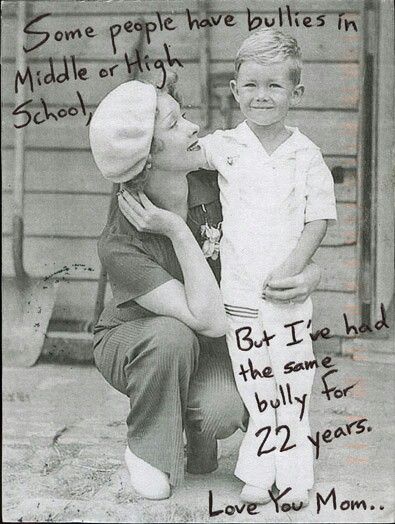
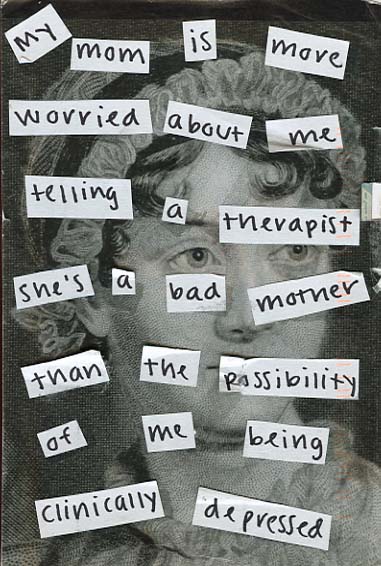
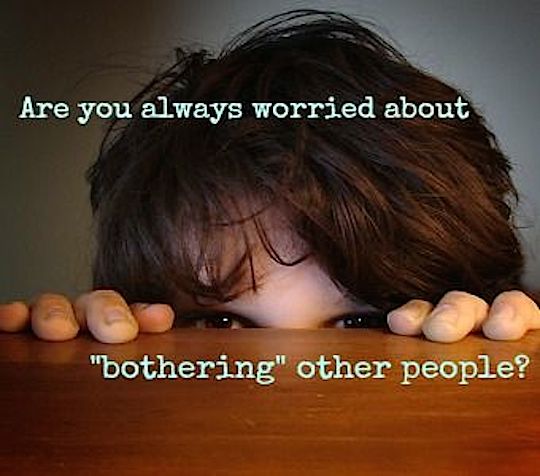

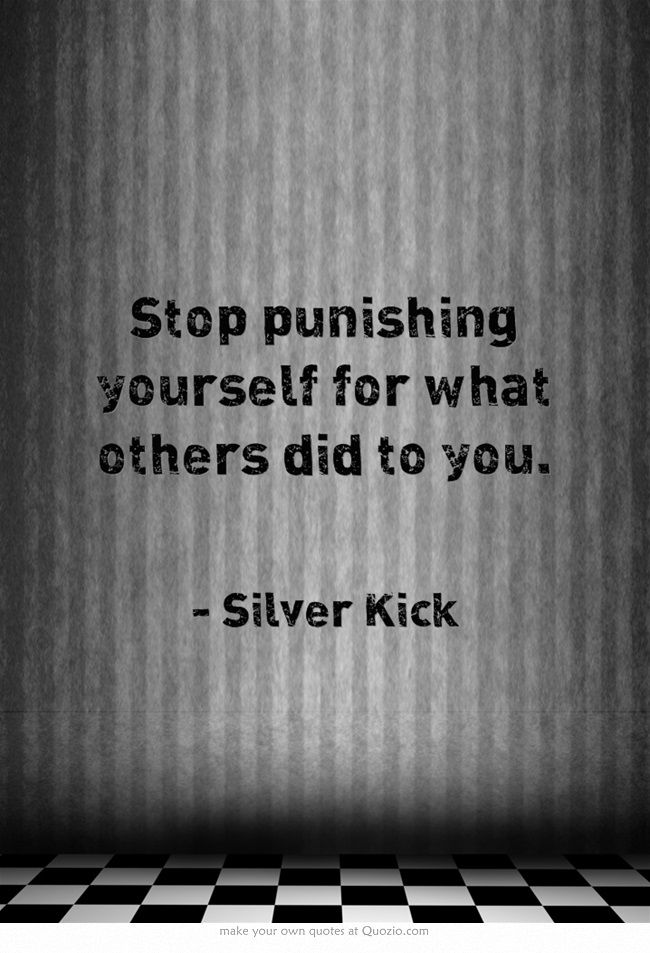

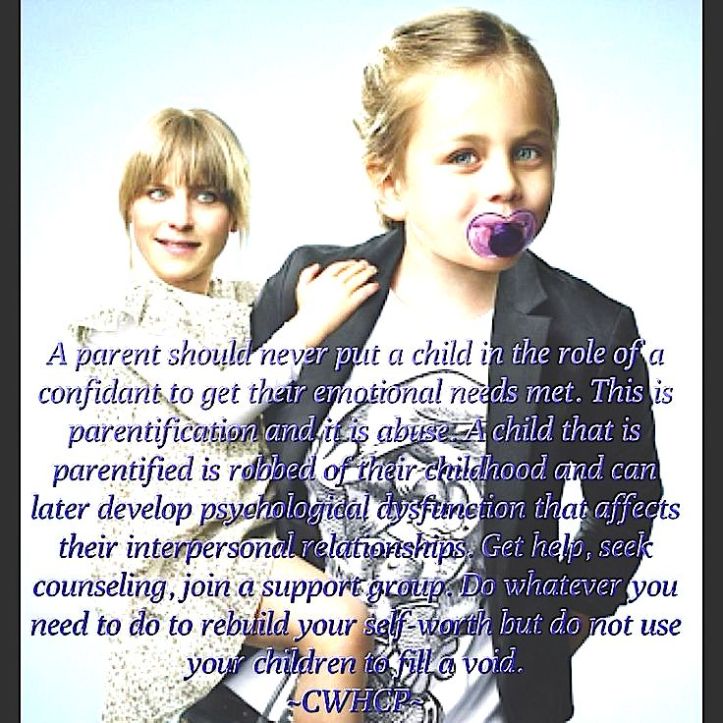
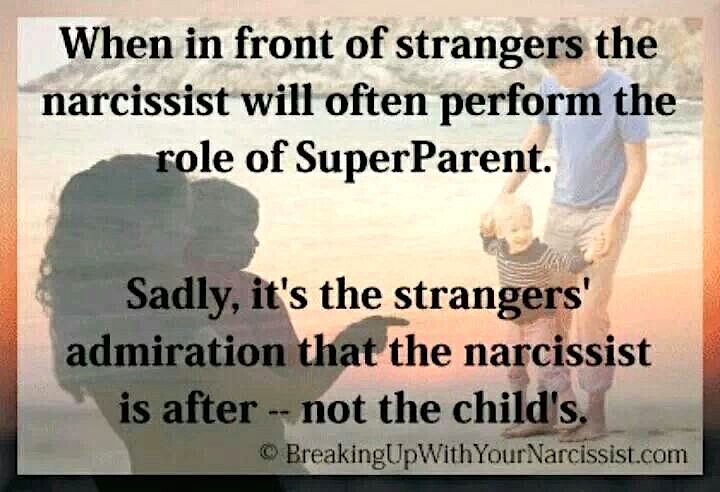

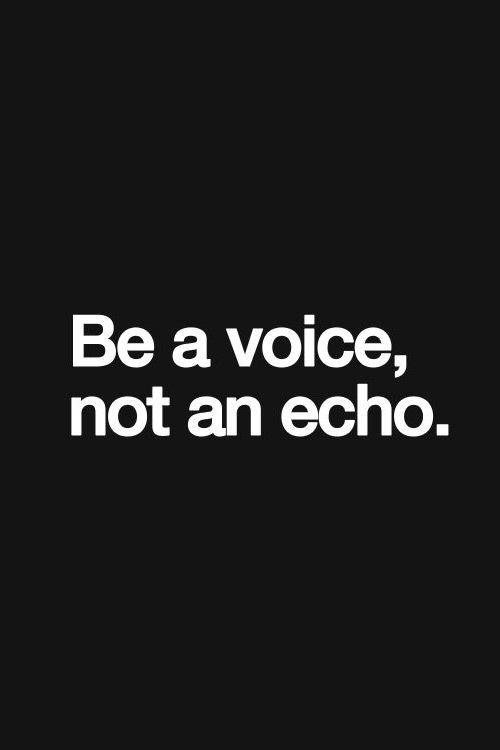
Thanks for this post, Ursula. Shared on all of my social media ❤
LikeLike
Thank you very much, Kim, much appreciated 🙂
LikeLike
Reblogged this on In the Net! – Stories of Life and Narcissistic Survival and commented:
This is an excellent post about the adult children of narcissists. Consider taking the survey if you think you may have had a narcissistic parent.
Thanks, Lynette
LikeLike
Thank you very much, Lynette, much appreciated 🙂
LikeLike
I’ve taken the survey. An interesting experience … Processing. 🙂
LikeLike
Cool! Thank you 🙂
I hope the processing uncovers some inner gems of insight.
LikeLike
Wow! I so needed to read this post. I know that is a small thing to say, really, but as I was reading it – all I kept thinking was “I needed this.”
LikeLike
Thank you very much 🙂
The blogosphere works in mysterious ways! Best wishes, take good care of yourself.
LikeLike
Very insightful, a slightly painful post to read. Thanks for recognizing the young victims.
LikeLike
Thank you very much 🙂
LikeLiked by 1 person
I have taken the survey and to the questions there we have all the answers, as theough they knew our parents-it’s a pity that is only about one and not both. i only regret to be able things as they are now that i am an old woman. Thank you. xxx
LikeLike
Thank you very much 🙂
You are older and wiser, and able to see things now in a way that you couldn’t before. We need to feel safe to do that, and it can take a long time for us to feel that way. So now is the right time for what you are seeing and doing. Many children of narcissists tend to figure things out later in life, partly that may be because there is so much information available and easy to access now, there’s more awareness too and acceptance.
I agree that the survey does lock you into choosing one parent, which is problematic if both your parents are narcissists. I suppose you could take the survey twice, once for one parent and once for the other – the comparison would be insightful.
I think that they may have decided to stick to a one parent choice to get more precise results, or it may be because there are more people who identify themselves as being the child of one narcissist while the other parent is perhaps viewed as an enabler or codependent, another victim of the narcissist parent. It also depends on the type of NPD that the parent has – an Overt narc is easier to identify than a Covert one, and the Covert narc parent may get identified as something else, so the child may not realise that the Covert narc parent has NPD.
In the search result stats of my blog I often see – Can both parents be narcissists? – or – What happens if both parents are narcissists? – as search terms which lead people to my blog. I think perhaps the idea of both parents being narcissists may be too much to take in, and the awareness of NPD is still a growing thing, still nascent in many ways. But every shift forwards is an acknowledgement and validation. We have to start somewhere and move gradually to somewhere else.
LikeLike
But i wonder why it took me so long, it’s not intentional, as I have always wanted to understand things, I have always cherished a quest for truth. it’s like being psychologically frozen, like tearing the painted veil.Maybe i couldn’t believe that the existence of loving parents was a lie in my case and i couldn’t do otherwise.In any case, the question of time is pivotal because it conditioned my life. Still i can’t identify what type of Ns are my parents, it’s as though all the lines were blurred; maybe my inner self objects to look closer at it.Thank you for what you are doing, you are very helpful.
LikeLike
Don’t worry yourself about it. We see things when we’re ready to see them, and it isn’t all due to us and our readiness, sometimes the information we need isn’t available until it is. Our timing sometimes depends on the timing of others, other things.
It’s only been in recent years that the awareness of NPD has gained momentum and has spread in a way which is reaching the darkest corners of the issue. Before it was more ‘niche’ and therefore more prone to being overlooked or missed or not accepted, things like that.
Figuring out what type of N’s your parents are… does it matter? They’re N’s, that’s a big step in understanding for you, for any child of N’s – it’s an AHA moment of great value, and it should be about you not about them. I think identifying the type of N is most pertinent when a Covert N is part of the dynamic, because they often present themselves as victims of an N spouse (or an N child), and force their view on their children. They are similar in their effect as Overt N’s but they’re harder to identify. It doesn’t sound like either of your parents were Covert N’s. So focus on yourself rather than them, on your healing and what you need.
And focus on yourself in a gentle manner, giving yourself the nurturing which your parents didn’t give you. Don’t worry about time and age and things like that – what matters is the here and now.
The ‘psychologically frozen’ reference is very true – being the child of an N is like being the child of an Ice Queen or King. We wait for our thaw and then we need to deal with what was once frozen, and what is still frozen still needs time to thaw.
Prendi cura di te ❤
LikeLike
Reblogged this on The House of Hale and commented:
Came across this in my blog roll and thought I would share it here with my readers as well. I haven’t made my decision about participating just yet, but I’m definitely willing to put the information out there. 🙂
LikeLike
Thank you very much, much appreciated 🙂
LikeLike
Sure thing! Thank you for finding it!
LikeLike
It found me… which is so often the way 🙂
LikeLike
Thank you. I work hard to silence the voice of my mother that is always in my head.
LikeLike
I’ve found that after years of trying to ignore the voices of others, my parents, in my head, trying to silence them but never being able to do that, listening to them with a different kind of listening has been quite useful, but you kind of have to take yourself out of the equation which can be tricky.
Narcissists are always talking about themselves even when they seem to be talking to you about you – it’s still all about them. How can they be talking about you when they never get to know you, never see you. You don’t exist to them, no one does, not even them.
So now when my mother’s voice pops up in my head, I hear her talking about herself rather than about me. So if her voice is criticising me (which is what her voice is always doing as that was what she always did – pick, pick, pick…picking me, everyone else and everything apart) I can hear how miserable she was, she was picking herself apart and rather than deal with it within herself she did what all narcissists do and that is pass it on to others. Her every criticism was about her not about me.
This helps to a degree, to balance things out, get a different and healing perspective, but you still need to nurture the parts of you that listened in the other way for a long time and took what was said by the narcissist personally and it became part of you.
Be gentle with yourself, take good care of yourself 🙂
LikeLike
I want to participate. What do I have to do? I think it’s important that I support any research into this cruel behaviour. thanks 🙂
LikeLike
Thank you 🙂
Just follow this link – https://ugeorgia.qualtrics.com/jfe/form/SV_bpUcPJ3CkaLjOPb – to the Parental Communication Measure Study and take the survey.
LikeLike
I’m going to pass this on. Thanks for sharing.
LikeLike
Thank you very much 🙂
LikeLike
Thanks so much for this post Sis! I will share it and give consideration to participating in the survey.
LikeLike
Thank you very much, Sis! ❤
LikeLike
i want tp participate the survey
LikeLike
This particular survey has ended, unfortunately it only ran for a short time, however the professors conducting it mentioned that they might do another one in the future and anyone interested in it can contact them directly. The links to their official bios where you can find their emails are embedded in their names in this post, so just click on Valerie Coles or Dr. Jennifer Monahan’s name.
You can read more about it here – http://n-continuum.blogspot.co.uk/2015/03/parental-communication-study-thanks.html
LikeLike
it is extremely painful to read the post when mentioned my mother is a bully for 22 years.. bring backs horrorible memories.
LikeLike
That particular image isn’t my story, but it could be which is why I used it, and just like you I can relate to it painfully. My mother would still be doing it if I hadn’t cut her off eventually. She used to tell me that I was her companion for life. It makes me shudder to think about it. I find sometimes that the memories are in some ways worse than when it was actually happening, perhaps because I can feel now what I felt then and what I could not allow myself to feel at the time. Sometimes an old incident will rise up and overwhelm.
Thank you for sharing 🙂
LikeLike
Hi Ursula,
I wish the survey hadn’t ended. My father has long past, but I’m starting to believe he was a narc. Maybe it’s just because of my recent experience? He was extremely physically abusive, sexually perverse (not with me, but rumored, never outright spoken), definitely a womanizer and most likely a cheater, a control freak, ‘functioning’ alcoholic, emotionally unavailable, kids were to be seen, but not heard, not much guidance given other than life experience, we were physically abandoned (he just showed up to pay bills and buy groceries) for another woman when I was 13, 3 different marriages so I could really never settle.. Looking back, I don’t recall the words “I love you” spoken. I was his ‘favourite,’ son, so I do remember very ‘loving moments,’ but maybe it was all for display? Holidays and vacations were always grand, but most ruined by something or someone. Those could have all been a charade and for parade as well? His public image or persona always seemed to be important to him, He’s long gone, or I’d outright ask him. He seemed to ‘mellow and reflect’ with age. We seemed to have a more ‘loving’ relationship before his passing. However, I finally went off on him after one of his ‘tantrums’ towards his passing, but this didn’t give me any kind of closure, just guilt. I was told after he passed, he said, “he loved me very much.”
Sorry to aire it out all on here, My hope is that it doesn’t trigger or offend anyone. My siblings would never speak about it, but we all had some serious traumatic childhoods to say the least. My brother seems to be narcish as well. He was my biggest bully. So how do you know? How does one know if they’re parent was/is a narc? And is there really any point of knowing at this point? It does give me some sense of ‘relief’ knowing it’s “not my fault” more that children always seem to carry in some regard. I would love him regardless. Is it my imagination after my ex, because why would I come to this at such a late age? Your thoughts and guidance would be sincerely appreciated.
LikeLike
Thank you for sharing 🙂
Sometimes our adult relationships reopen old wounds from our childhood which we’d closed away. It’s a good idea to explore those stories from our past as they are in many ways the foundations upon which we build our life. Our early relationship with the first people in our lives set the theme for our subsequent relationships. Those childhood experiences shape our stories.
Trying to figure out if your parent was/is a narcissist or not can be a complex puzzle, however there is a lot of information online, more so every day as being a child of narcissist parents is an issue which is gaining momentum and focus. Lots of professionals are writing about it, and children of narcissists are sharing their experiences.
For me personally it was a relief to put a label to my parents. It put things into perspective and the pieces of a very messy puzzle fell into place. It explained much of what I’d struggled to understand, and allowed me to let go of old patterns – particularly the ones which weren’t really mine, but were what I had absorbed from my parents. The most relieving aspect is you can finally stop worrying about why they didn’t love you and stop hoping that they will – they couldn’t love and never will. End of. It also allows you to see that the way they treated you had nothing to do with you and everything to do with them, because when you’re the child of a narcissist the relationship is all about them.
Figuring out your childhood relationships, helps to clarify many adult relationships, especially the romantic ones, those with spouses and such, as people often reenact unconsciously their relationship with their parents with their spouse, romantic partner, etc. It’s as though we’re trying to change a story, get somethign which we never got from our parent or parents from our spouse and romantic partners. Usually it’s unconditionally love we’re after in some for or another. To get a happy ending to a story. Something along those lines. There’s a lot of literature about it, just got to find the one which tells your story or as close to it as you can get.
This is quite a good site, it’s aimed at children, so it’s rather useful for figuring out how our child affects our adult self – http://www.angriesout.com/grown20.htm – there are other good articles on that site about narcissist parents and family environments.
This is also a very good article about being the child of a narcissist parent – https://theinvisiblescar.wordpress.com/2013/04/14/surviving-the-narcissistic-parent-acons-adult-children-of-narcissists/
Keep doing what you are doing and finding your story. There is no wrong path to take, there’s just the path you take.
LikeLike